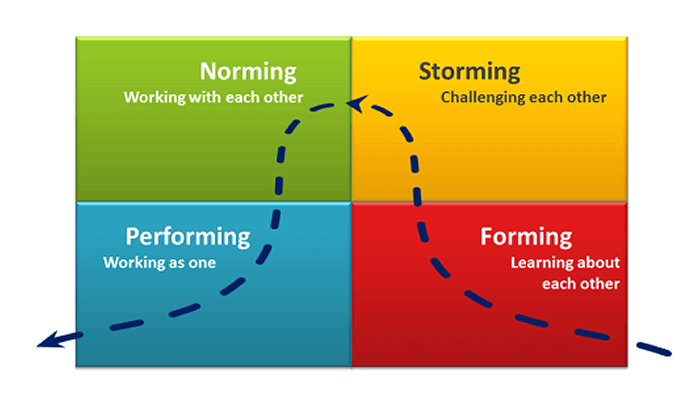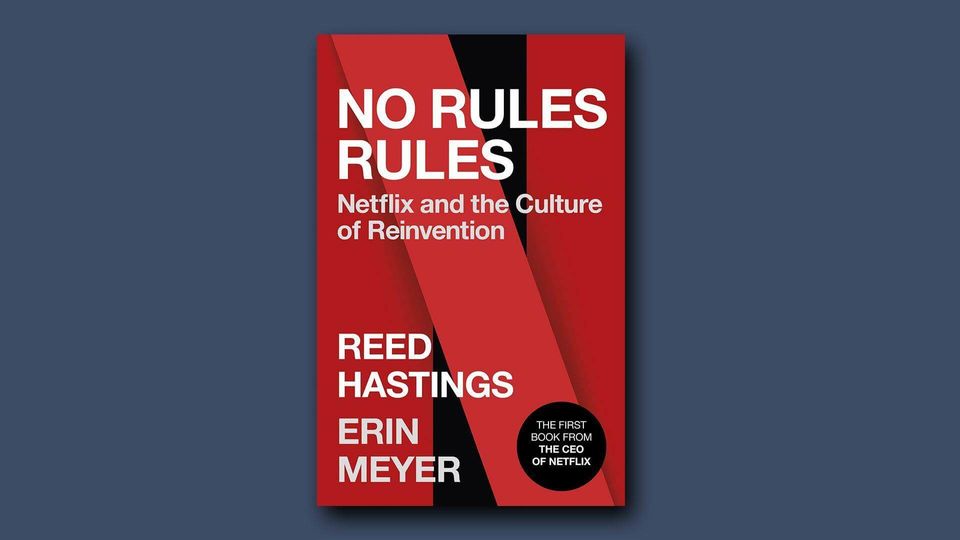How often do you talk about it?
And how often do you think about how this model is still relevant to teams in the modern world?
If you take a good look at the period when this model was created (1965: project management, resource approach) and the current realities (2000s: products, teams), then you can come to at least doubt the efficiency and realism of this model.
This is exactly what the study was about in 2007 http://hdl.handle.net/10945/33164
As well as Doc Norton's performance at Agile India 2019
https://www.infoq.com/news/2019/04/tuckman-team-model-wrong/#:~:text=Based on Norton's observations%2C the,for long periods of time.
And a little more here: https://medium.com/sprynkl/the-tuckmans-model-for-team-is-overrated-here-s-why-402bb95e2536 (with interesting facts)
Why is that?
In today's fast-changing world, in teams where uncertainty is at the highest level, the "Storming" phase becomes the norm and only a certain percentage goes into the "Norming" phase."
You think that the team is toxic and often argues... this is where I recommend stopping before coming to this conclusion.
Tested by personal 4-year close work with more than 50 IT teams, both collocated and re-located 😉
Why pause before intervening?
Then, in order for the team to create its own microculture, maintain innovation and self-organization, you may not know much and make hasty conclusions that will destroy the team and thus you will have economic losses.
How to make such a pause?
To begin with, we need to learn how to distinguish destructive conflict from constructive conflict, and the Thomas-Kilman model (TKI) helps us with this – 5 main styles of behavior in conflict: collaboration; competition; compromise; adaptation; evasion.
https://kilmanndiagnostics.com/overview-thomas-kilmann-conflict-mode-instrument-tki/
And if you don't grow a culture of constructive conflict that occurs at the "Collaboration" level" – a heated discussion of all the arguments, everyone expresses an opinion, does not go to the individual and is not afraid to be left out, and also, if you delegate the solution of a number of tasks, then your organization will not only be innovative, but also ready for quick changes (flexible), since such teams highlight all the risks, solve the issue in the moment, escalate and do not hide mistakes for the sake of preserving a "beautiful" face inside the company, showing loyalty to the boss inside, and in the meantime, the client just hurts...and the company has not released anything of high quality to the market for a long time.
If you look closely, this can be found in Tuchman's "Performing: constructive actions" phase, however, life is more complicated and you can easily confuse "Performing" with the "Storming" phase, and the team's behavior model is completely nonlinear 😉
See if it has happened that because of your own command&control (traditional management), teams have come to the stages-evasion, adaptation, or just compromise.
🤔 Think about it, is this behavior in the interests of you as a manager or in the interests of the company? If your answer is in the interests of the company – think about it, do you want to continue to see your company as a leader in the market or are you just already drifting on the laurels of past achievements? How long will it last? 🧐




